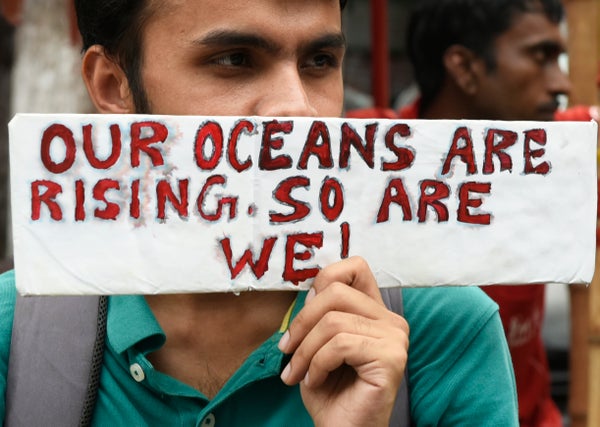Welcome to Scientific American’s Science Talk, posted on October 2, 2019. I’m Steve Mirsky.
The United Nations here in New York City, last week, hosted the U.N. Climate Action Summit. Scientific American senior editor Jen Schwartz was on site. She moderated a panel on climate and health and did an interview on transitioning to clean energy. Each is about 11 minutes long.
First up is the climate and health panel. Schwartz spoke with Dr. Maria Neira from Spain and Dr. Agnès Soucat from France. Neira is the director, Department of Public Health, [Environmental] and Social Determinants of Health, World Health Organization. Soucat is the director, Department of Health Systems Governance and Financing, World Health Organization.
On supporting science journalism
If you're enjoying this article, consider supporting our award-winning journalism by subscribing. By purchasing a subscription you are helping to ensure the future of impactful stories about the discoveries and ideas shaping our world today.
HEALTH AND CLIMATE SEGMENT
Next, on to clean energy. Jen Schwartz interviewed Rachel Kyte.
ENERGY SEGMENT
That’s it for this episode. Get your science news at our Web site (www.ScientificAmerican.com), where you can read Mark Fischetti’s article on how “Massive Forest Restoration Could Greatly Slow Global Warming.”
And follow us on Twitter, where you’ll get a tweet whenever a new item hits the Web site. Our twitter name is @sciam. For Scientific American’s Science Talk, I’m Steve Mirsky. Thanks for clicking on us.

